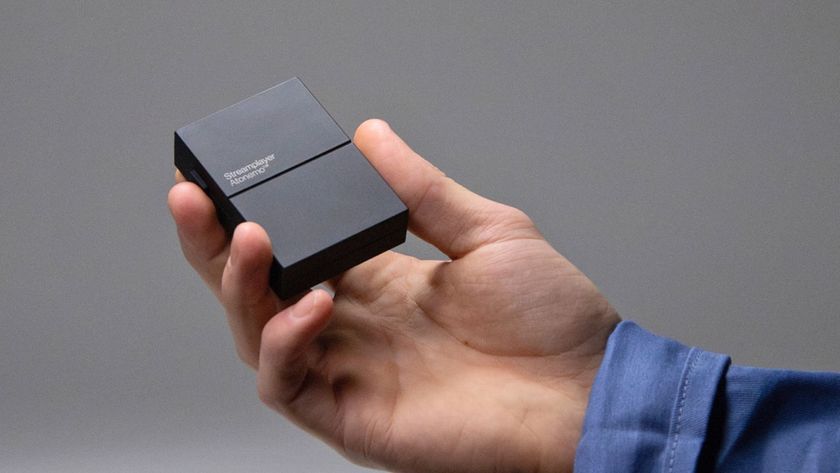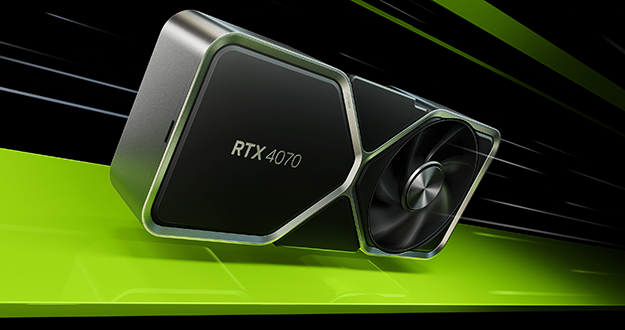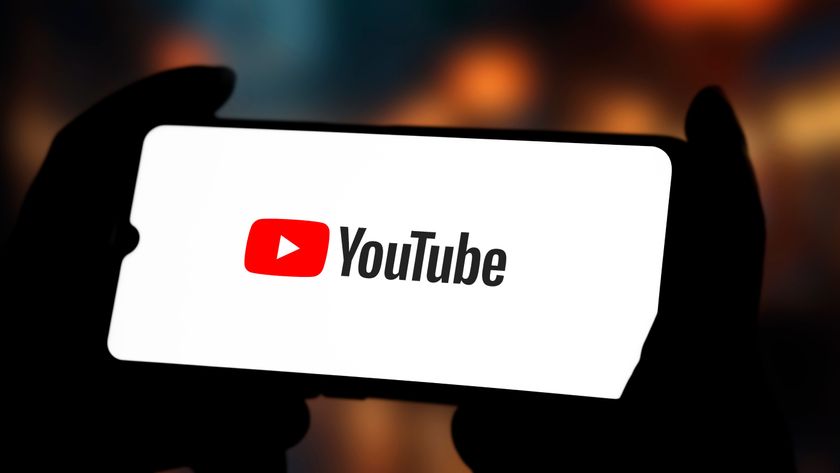SpaceX proved itself just in time to spare NASA a huge headache
Can SpaceX help make space less political than it already is?
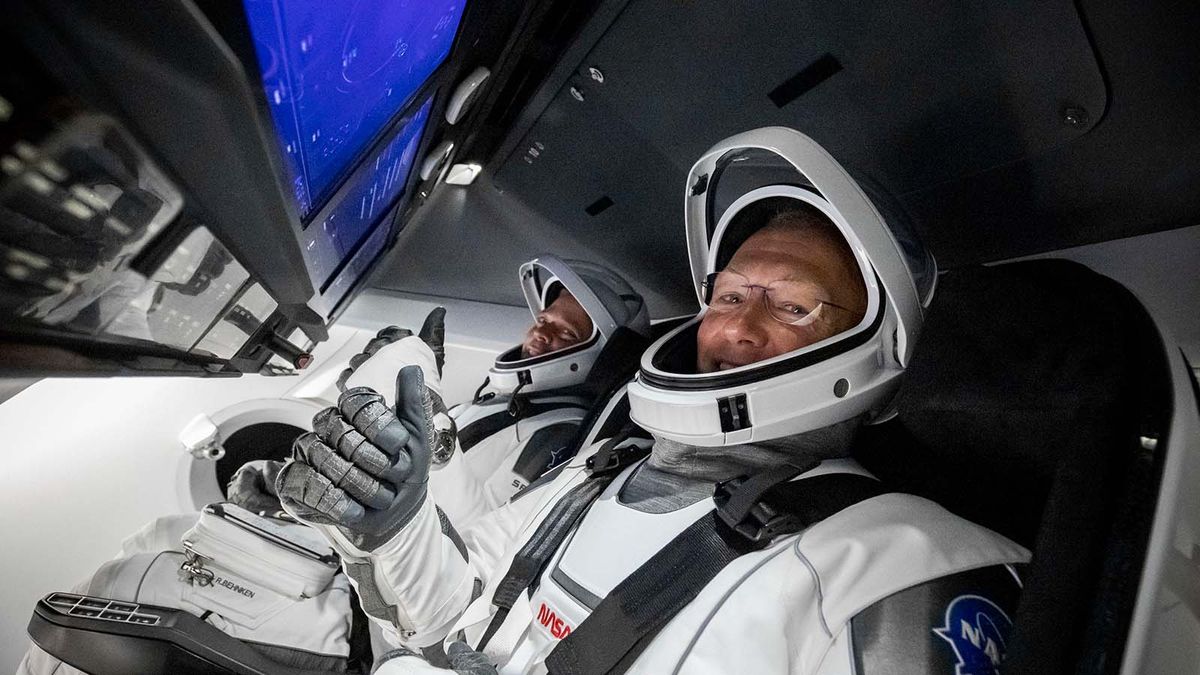
Space has always been a geopolitical battlefield, from the first Soviet satellite to the brewing space race between China and the United States. This time, thanks to SpaceX, NASA can sidestep the thorny issue of just-announced Russian sanctions following that country's invasion of Ukraine.
Among the sanctions that US President Joe Biden announced on Thursday was a ban on high tech and aerospace technology exports, which will almost certainly disrupt cooperative space efforts between the two countries, especially as it relates to the operation of the International Space Station (ISS).
While there are still a host of implications for space to consider given the recent developments, there is at least one thing NASA won't have to worry about: awkwardly asking to hitch a ride aboard a Russian rocket to get its astronauts to the ISS.
Until recently, NASA relied on Russia to get to space
After the retirement of NASA's Space Shuttle program in 2011, NASA had no way to ferry astronauts from US soil to outer space, so it had to turn to Roscosmos, Russia's space agency, and book passage on its Soyuz rockets and at a pretty hefty premium.
While this in itself isn't nefarious – we actually want these kinds of mixed flights between nations – it was expensive since the Soyuz rocket isn't a very efficient system and bears a lot of similarities to NASA's space operations prior to 2012.
The Soyuz family of rockets (first introduced in 1966) are "expendable" rockets that are discarded and either burn up in the atmosphere or crash down into the ocean after using up their fuel.
Understandably, this is an expensive proposition, and NASA was paying Roscosmos as much as $90 million for a seat on its rocket launches. This also put NASA in a pinch, since riding on the rocket of a geopolitical rival is subject to any number of choke points where Russia could effectively cut off NASA's access to space in the event of a conflict, like, say, Russia invading Ukraine.
Get daily insight, inspiration and deals in your inbox
Sign up for breaking news, reviews, opinion, top tech deals, and more.
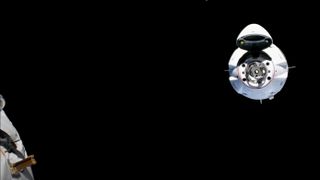
SpaceX's Dragon Crew blasted off just in time for NASA
Given the cost of expendable rocket systems and the risk of paying a rival space agency for rocket flights, it's understandable that NASA would look for a better solution.
It hasn't been cheap, either. NASA settled on two companies to compete for the chance to return astronauts to space from US soil: SpaceX and Boeing.
NASA spent billions of dollars in contracts with both companies to build up to crewed space flights, with SpaceX being the first of the two in 2020 to have its crew capsule certified for ferrying astronauts into space and docking with the ISS.
Boeing, on the other hand, has been unable to get its Starliner crew capsule to successfully dock with the ISS, much less bring a crew up there. Were NASA to have relied on long-time partner Boeing for crewed missions, it would still be waiting for Boeing to prove its capsule could do the job right now, which would make Thursday's sanctions announcement a major headache for the agency.
It's almost certain that any sanctions would have exempted NASA space passengers on Russian rockets if that was the only available option. However, Russia could still have made negotiating such flights a major pain point. Think a $90 million ticket was expensive? There's no reason why Russia couldn't have doubled or tripled that price right now.
Fortunately, having funded SpaceX to the tune of more than $5 billion over the past several years, NASA doesn't have to worry about the politics of war and peace keeping its astronauts grounded indefinitely.
Will Roscosmos be cut off from the next generation of space technology?
Not only does SpaceX keep NASA from making uncomfortable and expensive deals with Roscosmos right now, but Roscosmos stands to lose even more than an important source of revenue.
First, SpaceX provides a cheaper alternative for NASA, so the revenue stream Roscosmos was making off NASA has dried up entirely, with the last NASA contracted flight on a Soyuz rocket taking off in 2020. That was effectively easy money that Roscosmos could put towards building rockets and improving its systems. Now that money will have to come from elsewhere.
Loss of space ferry income isn't Roscosmos' only problem. The agency recently admitted that the SpaceX Dragon Crew capsule is safe enough for Russian cosmonauts, opening the door for Russia to book passage on SpaceX flights instead of using its own aging, expendable rocket system.
Those missions could now be threatened by US sanctions, which forbid the export of high-tech and aerospace products to Russia, specifically targeting that nation's advanced technology sectors, like space operations.
We've reached out to NASA's space operations office for clarification on whether Thursday's sanctions will keep cosmonauts off SpaceX flights and will update this story if we hear back from the agency.
Wondering if space-tech-related sanctions might make it impossible for @SpaceX to work with the Russian Space agency (and ferry Russian astronauts). Any insight, @elonmusk ?February 24, 2022
Not only will SpaceX likely be prevented from doing business with Roscosmos as many had hoped, it's hard to see how Roscosmos will be able to develop reusable rockets themselves when the US currently has a monopoly on that technology.
The savings that reusable rockets provide frees up a lot of money for more ambitious space missions, like a moon base and even missions to Mars. Reusable rockets also make private low Earth orbital development possible. Being cut off from that technology in the near-to-medium term pretty much surrenders low Earth orbit development to the US and a very ambitious China.
Roscosmos could absolutely develop that technology on its own – they have some of the best rocket scientists in the world, after all, and they are already working on a partially reusable Soyuz-7 rocket design – but that will take a long time to get going, all the while SpaceX and others are pushing the technology envelope even further.
In the meantime, Roscosmos is working to just get to where SpaceX was five years ago, and even in the best of circumstances such operations weren't expected before 2026. Now with sanctions on their tech and space operations sector, that window is going to be pushed back even more.
As a result, Russia risks losing out on what is set to become Space 2.0, as the US and China take the lead on the next generation of space technology and development.

John (He/Him) is the Components Editor here at TechRadar and he is also a programmer, gamer, activist, and Brooklyn College alum currently living in Brooklyn, NY.
Named by the CTA as a CES 2020 Media Trailblazer for his science and technology reporting, John specializes in all areas of computer science, including industry news, hardware reviews, PC gaming, as well as general science writing and the social impact of the tech industry.
You can find him online on Bluesky @johnloeffler.bsky.social







